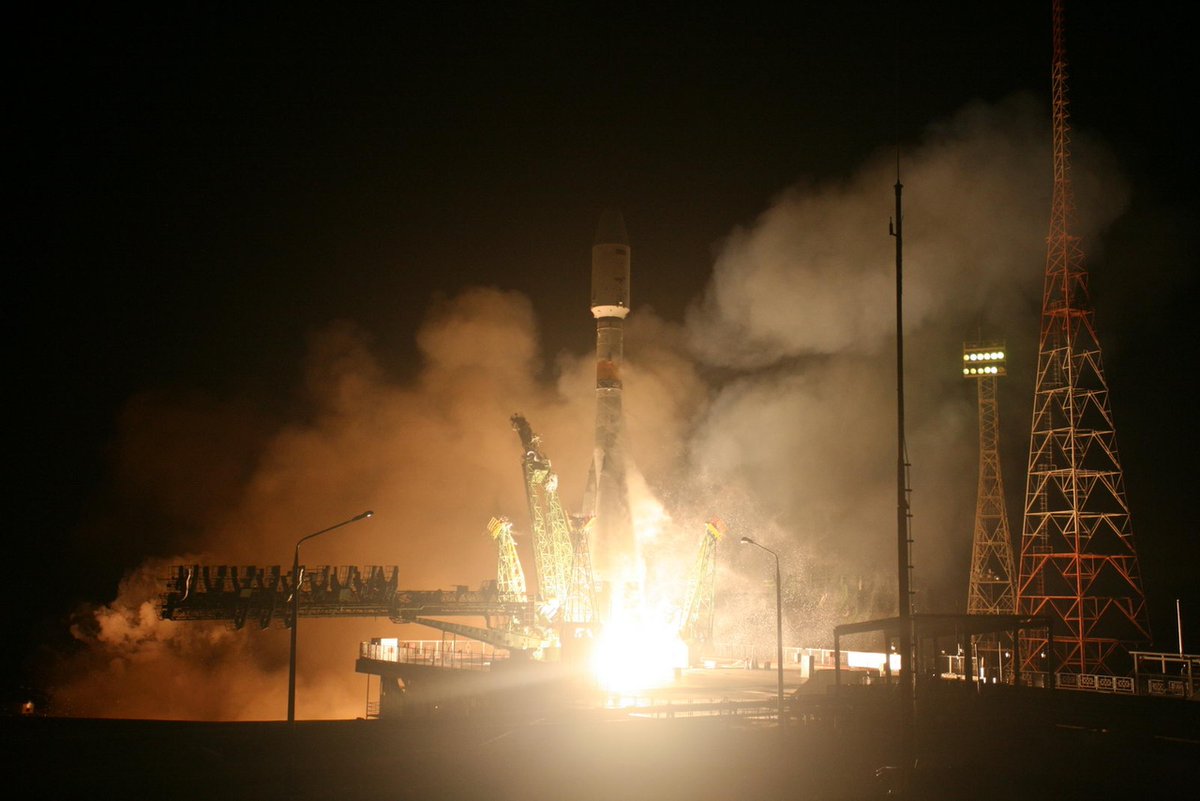ICYMI: Egyptian Satellite Reaches Orbit After Soyuz Rocket Glitch

A Russian Soyuz rocket launched an Egyptian Earth-observation satellite into orbit on Thursday (Feb. 21) despite experiencing technical problems a few minutes after liftoff.
The three-stage Soyuz rocket lifted off from the Baikonur Cosmodrome in Kazakhstan at 11:47 a.m. EST (1647 GMT), topped with the satellite EgyptSat-A, which was attached to the rocket's Fregat upper stage. Although Russia's space agency, Roscosmos, and the satellite's manufacturer, RSC Energia, reported that the satellite had reach its intended orbit, multiple Russian news reports "suggested [that] the mission may have experienced a close call during the climb into orbit," Spaceflight Now reported.
According to Spaceflight Now, EgyptSat-A and the Fregat upper stage had entered a "lower-than-expected orbit" after separating from the Soyuz rocket 9 minutes after liftoff — likely due to a problem with the rocket's third-stage engine. However, the Fregat upper stage "appeared to have corrected the apparent performance shortfall," boosting the satellite to its intended polar orbit, at an altitude of about 400 miles (650 kilometers).
The $100 million EgyptSat-A will provide high-resolution images of Earth for Egypt's National Authority for Remote Sensing and Space Sciences (NARSS). EgyptSat-A was built as a replacement for EgyptSat-2, which failed in April 2015, three years into its planned 11-year mission.
Thursday's anomaly led the European launch provider Arianespace to postpone lofting the first 10 OneWeb communications satellites by one day, to Tuesday (Feb. 26), because that mission will also use a Soyuz rocket. "That flight is slated to use a Soyuz ST-B rocket, a variant that uses the same third-stage design as the Soyuz-2.1b launcher that flew Thursday with EgyptSat-A," Spaceflight Now reported.
"At least one day slip for the launch. Ugh," Greg Wyler, founder and executive chairman, tweeted after EgyptSat-A's launch on Thursday. "Glad to see EgyptSat-A launch was successful but need to review more data on that launch before proceeding. Waiting patiently."
You can read Spaceflight Now's full report on the launch of EgyptSat-A here.
Get the Space.com Newsletter
Breaking space news, the latest updates on rocket launches, skywatching events and more!
Email Hanneke Weitering at hweitering@space.com or follow her @hannekescience. Follow us on Twitter @Spacedotcom and on Facebook.
Join our Space Forums to keep talking space on the latest missions, night sky and more! And if you have a news tip, correction or comment, let us know at: community@space.com.

Hanneke Weitering is a multimedia journalist in the Pacific Northwest reporting on the future of aviation at FutureFlight.aero and Aviation International News and was previously the Editor for Spaceflight and Astronomy news here at Space.com. As an editor with over 10 years of experience in science journalism she has previously written for Scholastic Classroom Magazines, MedPage Today and The Joint Institute for Computational Sciences at Oak Ridge National Laboratory. After studying physics at the University of Tennessee in her hometown of Knoxville, she earned her graduate degree in Science, Health and Environmental Reporting (SHERP) from New York University. Hanneke joined the Space.com team in 2016 as a staff writer and producer, covering topics including spaceflight and astronomy. She currently lives in Seattle, home of the Space Needle, with her cat and two snakes. In her spare time, Hanneke enjoys exploring the Rocky Mountains, basking in nature and looking for dark skies to gaze at the cosmos.









